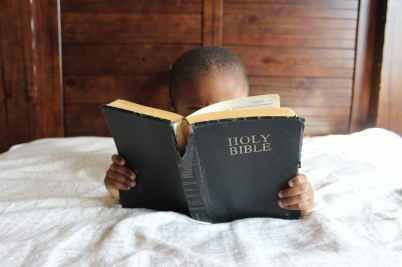Eve ~~
Genesis 2:15-25
Eden, fresh from the hand of the Creator. Beautiful beyond imagination. Self watering and weed free. Every tree bearing delicious fruit, just for the picking. Yes, there were two special trees in the very heart of the Garden. The Tree of Life and the Tree of the Knowledge of Good and Evil.
There was only one prohibition. Do not eat of the Tree of the Knowledge of Good and Evil.
They why plant it there? To see if man would choose life.
Then from His loving heart, the Creator put the man into a deep sleep, took one of his ribs and closed the flesh. Out of the rib, He made a perfectly matched and fitting together, helpmate. A woman. And the man was “wowed!”
Naked and unashamed the roamed and worked the Garden, eating fruit as they desired, learning about each other. Heaven on earth.
One day, walking together, the woman laughing and frolicking, her toes treading deep in the soft dewy grass, they came upon a magnificent tree.
“No, Eve. Let’s go on. We aren’t to eat the fruit on that tree.”
“Why not?” she asked her husband.
“The LORD God said so,” Adam told her.
“But why not?” she said again, walking toward the tree, her eyes wide with wonder.”
“He said we would surely die.”
“What does ‘die’ mean, Adam?” she said circling the trunk of the enticing tree, delight on her face.
“Why, hello there,” came a silvery voice from the heavily laden branches. “Did God actually say ‘you shall not eat of any tree in this lovely garden?”
The woman peered closer and saw a beautifully colored serpant weaving before her. “We may eat of all the trees here except this one. He said we would ‘surely die’ if we did. We may not even touch it,” she added coyly.
“You shall not surely die,” came the sensuous, deep voice. “For God knows that when you do eat of it, you will be like God, knowing good and evil.”
He paused then continued, “Here, try one. It is sweeter than any fruit you have ever eaten.”
The woman saw that the fruit would be good for food, and wasn’t that her tummy growling?
It was a beautiful fruit as well, so shining and deeply hued. She fancied she could even smell the warm fruitiness. Her mouth began to water.
And, if eating the fruit would make her wise, well, why wouldn’t anyone want that. She reached up, touched one of the fruits, and it fell into her hand. She put it to her mouth and took a bite. It was so sweet and juice ran down her chin. “Ohhhhhh!” she moaned in pleasure.
“Here, husband, you must have one too!”
And Adam also ate.
Instantly the eyes of their soul were opened and the knew they were naked and they were ashamed. They crept into the trees, hands and arms covering the parts of their bodies they had deemed beautiful before. The half-eaten fruit lay in the grass, already beginning to rot. Flies hovered nearby.
Later, in the cool of the evening when they always walked and talked with their Creator, they heard His voice. That voice that had inspired such great joy within them, now struck terror.
“Where are you, my children?”
Adam crept out from the bushes, the hastily woven leaves covering his genitals. “I… we…heard your voice and were afraid because we are naked.”
“WHO told you, you were naked?” thundered the voice of God. “Have you eaten of the tree which I commanded you not to eat?”
“The woman you gave me to be with, she gave me the fruit and I ate.” Adam answered his voice quavering.
God turned to the woman, “What have you done?”
“The…the…serpent deceived me… and… I ate,” her voice barely a whisper.
The God of the Universe turned to the serpant and roared, “You are cursed above all things. I will put enmity between you and the offspring of the woman. You shall bruise His heel. But HE, He shall crush your head!”
“And as for you, woman, you will have pain now in childbearing. Your desire will be for your husband, and he shall rule over you.”
Majesty turned then to Adam. And in a still but intense voice, He said, “Because you listened to your wife, cursed is the ground because of you. In pain you shall eat of it all your days. Prickling, painful thorns will it bring forth for you, to tear your flesh. You will sweat and toil and in the end you will return to the dust from which I made you.”
Then in saddness and anger the Creator drove the humans He’d created out from the Garden He’d made for them. He placed one of His myriads of cherubim with a flaming sword that turned every way to guard the way to the Tree of Life.
Lest the man and woman now eat of it and live eternally in their SIN.

The picture represents Eve in shame before Mary who is carrying the promised offspring, the Son of God, who will indeed die by the serpant’s wiles, but who will rise from the dead triumphant to crush death and Satan forever.
LORD, help me to seek Your face and Your ways, and to love and obey you with my whole heart. Lead me not into temptation and deliver me from the Evil One.
Jh





